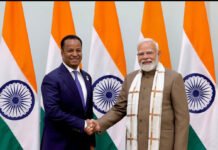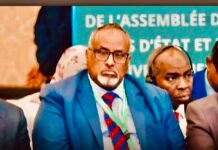MOGADISHU, (HAN) – Somalia is entering a new chapter of political and security stability — a phase considered significantly better than the turbulent decades the country has endured over the past 20 years. The Somali government has taken major steps to strengthen national security and rebuild state institutions, aiming to restore full sovereignty and self-reliance.

While there have been notable successes on the ground — with the federal government and regional administrations now in control of most territories — the international community continues to closely monitor the situation. Despite the progress, foreign troops remain present in the country, often under revised mission names and with renewed mandates, sparking ongoing debate about their necessity and effectiveness.
For nearly two decades, over 20,000 foreign troops have been stationed in Somalia. These troops, previously operating under the African Union Mission in Somalia (AMISOM), are now part of a newly restructured mission, though critics argue that the change is largely cosmetic. Over the past three years, however, Somali national forces and local security units have demonstrated increasing capacity and resilience, raising questions about the continued need for a large foreign military presence — beyond limited technical support.
Most of the African Union forces, now under the AUSSOM mission, remain stationed in bases they established over ten years ago. Their operations are largely limited to guarding a few government facilities, yet each year sees new troop deployments. Additionally, several new countries have shown interest in joining the mission.
Recently, Egypt and Eswatini — countries located in the far north and south of Africa respectively — became part of the mission, bringing the number of troop-contributing countries in Somalia to nine: Djibouti, Ethiopia, Kenya, Uganda, Burundi, Sierra Leone, Nigeria, Egypt, and Eswatini.
Some of these countries have deployed nearly 2,000 personnel, including both military and police forces. However, security analysts remain skeptical about whether the addition of new nations will significantly alter the effectiveness or dynamics of the mission.
Despite the challenges, Somalia continues to grapple with insecurity and threats from terrorist groups, but both the government and the public increasingly recognize that national self-reliance is the only sustainable solution. There is growing consensus that foreign troops — while once essential — may no longer be contributing meaningfully to long-term stability.
As Somalia strives to rebuild from decades of conflict, the focus is shifting inward: on building its own institutions, strengthening local security forces, and reducing dependency on external military support.



